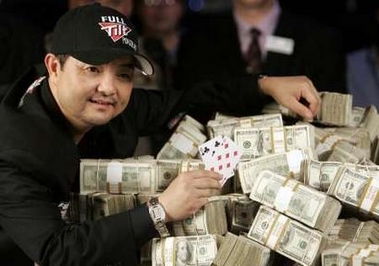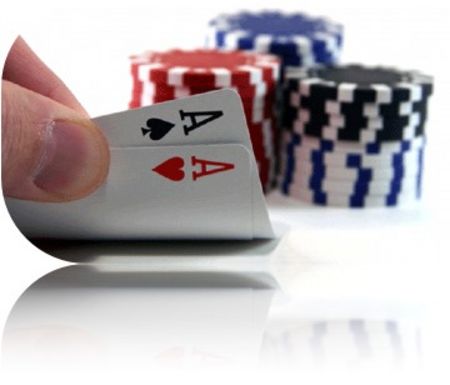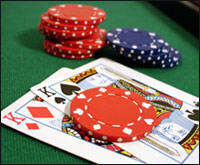Probability and Odds
 Applying
odds at the poker table is essential to making good poker decisions. Some
experienced players can do this simply by their excellent feel and judgment for
the game, but most of us need to rely on mathematics to help guide us with close
decisions. Players who understand how to apply odds in a poker game will have a
significant advantage over most of their opponents....next
Applying
odds at the poker table is essential to making good poker decisions. Some
experienced players can do this simply by their excellent feel and judgment for
the game, but most of us need to rely on mathematics to help guide us with close
decisions. Players who understand how to apply odds in a poker game will have a
significant advantage over most of their opponents....next
Deceptive Tactics
Deception is an important part of every successful player's strategy. If your bets and raises always mean your hand is strong and your cheeks always mean you have a weak hand, observant opponents will have a tremendous advantage since they will always know the strength of your hand. We have already discussed some ways to add deception to your game with bluffs, semi-bluffs, and check-raises. Other deceptive tactics include free cards, slowplaying, and inducing blurts or calls...next
Starting Hands
 One of the main differences between the players who win and the players who lose
is the quality of starling hands played. In general, most players should only be
playing about 15% to 25% of their hands. This varies depending if the game is
loose or tight, but in either case, playing fewer hands than your opponents is a
big advantage...next
One of the main differences between the players who win and the players who lose
is the quality of starling hands played. In general, most players should only be
playing about 15% to 25% of their hands. This varies depending if the game is
loose or tight, but in either case, playing fewer hands than your opponents is a
big advantage...next
Beginning/Intermediate Players
Many players lose a lot of money playing too many hands in early position. There are three distinct disadvantages when playing from early position; Yon do not know how many players will be playing the hand, You are unsure of how much it will cost to play the hand since the pot could be raised or even reraised behind yon...nextStarting Hands Advanced Concepts

The Flop
The flop is a defining moment in Texas Hold'em. It is important to determine right away if your hand has value before you start committing chips to the pot. Many players consider the turn to be a more important round of betting since it is more expensive, but it is often the mistakes you make on the flop that create further mistakes on the turn and river. For example, if you make a weak draw on the flop and hit it on the turn only to lose to a better hand, it was probably a mistake on the flop that led you to lose several bets.Lets look at the most important considerations you should evaluate on every flop...next
Betting Strategies

Nut Hands
Sets and Trips


